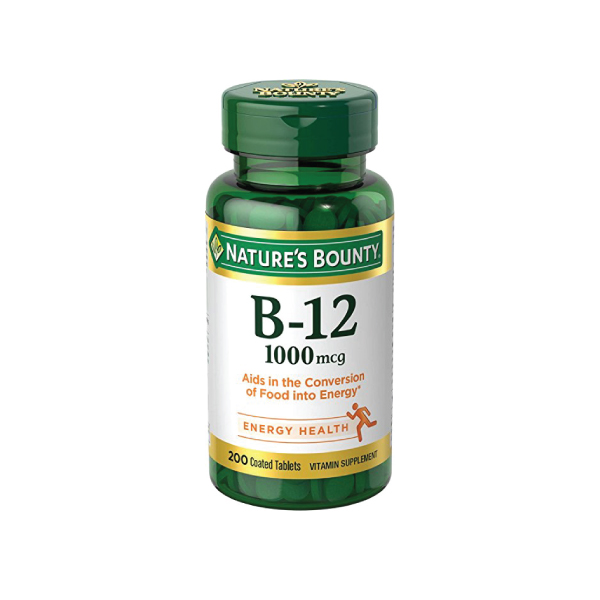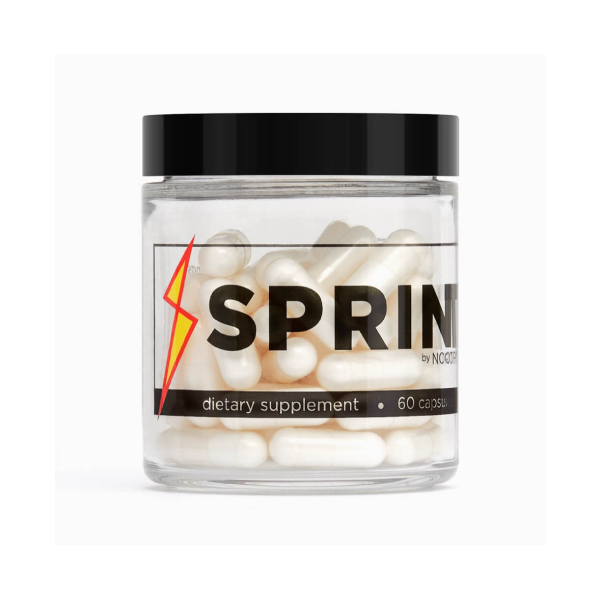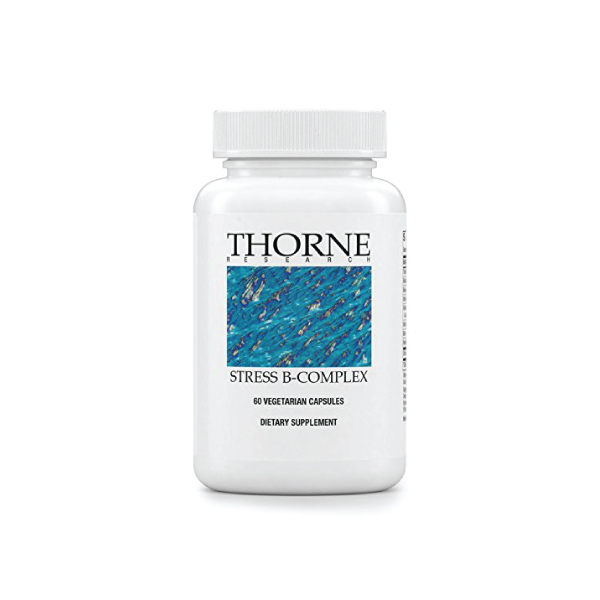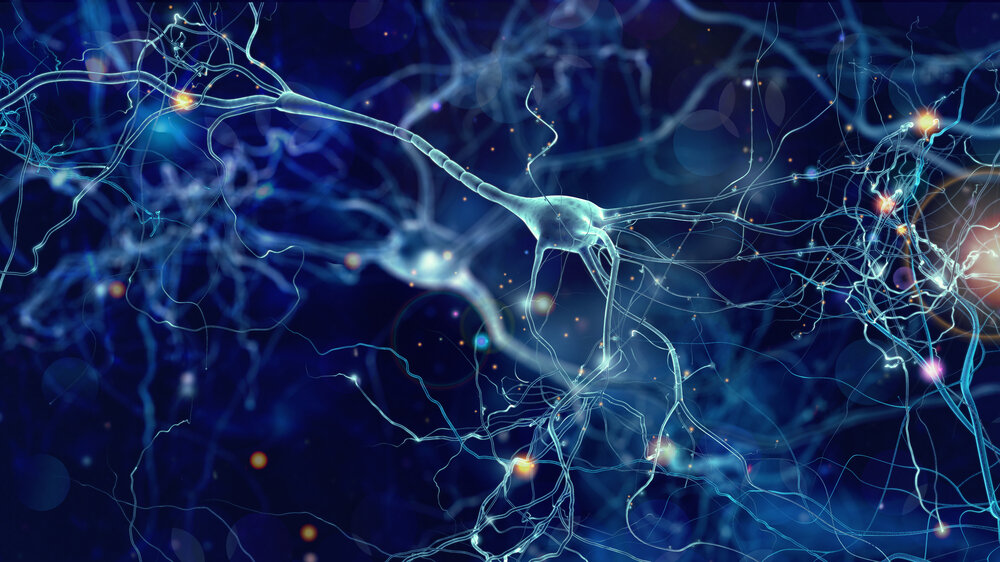We’ve all seen vitamin ads telling us they’ll make us healthier than ever before.
That we can boost our immune system, improve concentration, and prevent heart disease... somehow...
This sounds great, but how can these vitamins do all this?
Or the better question is CAN these vitamins do what they’ve been promised to do?
Poor health reporting over the last 20 years has made it hard to differentiate what supplements are legit, and which ones are a waste of your time and money.
The purpose of this article is to investigate the role B vitamins have on cognitive health.
We'll discuss what the major players are, and why they are so important. Then talk about ways you can ensure your B vitamin levels are on point with the best sources and the right supplemental doses.
What Are B Vitamins?
B vitamins consist of a carbon chain (like nearly all things in the human body), and an amine group. Amines in the most basic sense are molecules that contain the element nitrogen.
Nitrogen is a unique element... it offers the ability to make different chemical structures than the usual carbon atom can. It's from this unique bonding property that makes nitrogen-containing groups special. In the case of B vitamins, they're used as co-factors and co enzymes throughout the body.
This means they act like tools for enzymes to construct proteins and various other chemicals.
Cofactors and coenzymes are substances that help enzymes do their job. They can be as simple as a mineral, or as complex as a B vitamin
B Vitamins Are Diverse
One of the most interesting things about B vitamins is the vast difference between them.
They aren't grouped according to any structurally similar traits (aside from the amine group shared with all true vitamins), rather, they're grouped according to their shared solubility in water, and functionality as cofactors and coenzymes.
Have a look at the structural differences between vitamin B3 and B12 for example. B are used as coenzymes in the body yet B12 is more than 10 times the size and is immensely more complex in its structure than vitamin B3.
How B Vitamins Affect The Brain
All B vitamins are necessary cofactors in the process of energy production from carbohydrates, lipids, and proteins in different ways.
This makes it obvious why B vitamins are important for healthy brain function.
Without the ability to create energy, our brain can’t function.
This is the simple version. And is the reason why B vitamins can contribute to optimal brain function. Beyond energy production, there are three B vitamins that play specific roles in the brain and nervous system. Vitamins B6, B9, and B12 are considered the major players when it comes to brain health.
B6 (Pyridoxine)
Vitamin B6 is a medium sized molecule in comparison with the other seven B vitamins.
B6 is a necessary cofactor in over 140 different enzymatic processes that work with the synthesis, breakdown, and conversion of amino acids within the body [3].
The Symptoms Of Vitamin B6 Deficiency:
- Mood changes
- Irritability
- Depression
- Confusion
- Low energy or fatigue
- Muscle pain
- Anemia
- PMS
Amino acids are used to build every protein in our bodies, including our enzymes and many of our neurotransmitters.
This also includes “homocysteine” which is linked to the development of cardiovascular disease, and cognitive disorders like Alzheimer's disease.
Vitamin B6 works with B9, and B12 to reduce homocysteine levels throughout the body by converting it into its safe metabolite “cysteine” [1].
We’ll get into this later on when we discuss B9 and B12 because they’re the major factors in controlling homocysteine.
The most direct influence vitamin B6 has on cognitive function is through its role in neurotransmitter synthesis.
It's from the essential role B6 plays in amino acid degradation and synthesis, that makes it a rate-limiting factor for neurotransmitter production. This means that if B6 levels are low, neurotransmitter production will also be limited. [3].

Neurotransmitters are the messenger molecules for our brains.
They're what passes the signal along which results in muscle movement, emotions, and even homeostatic control.
Low neurotransmitter production is linked with all kinds of side effects like depression, anxiety, and brain fog.
Many nootropics (smart drugs) that target neurotransmitter health includes vitamin B6 for its crucial contribution to the process and to maximise the use of other ingredients.
Think of it like this; you are building a house (the neurotransmitter), and you order a shipment of brick and mortar to complete it. The bricks are the amino acid building blocks, and the mortar is the vitamin B6 needed to stick them together. The truck shows up and drops everything off, but there isn’t enough mortar to finish the job. You’ll build what you can until you run out of mortar, but will eventually be forced to stop.
Now, what you’re essentially left with is a pile of bricks on the front lawn, and a half-finished house.
This is the same with the neurotransmitters, and is the reason vitamin B6 is considered a “rate limiting factor”. You can't build a house of bricks if you don’t have enough mortar.
B9 (Folate) and B12 (Cobalamin)
These vitamins are closely linked in their role in maintaining brain health. They are both connected in the folate and methionine cycles.
If B12 becomes deficient, folate will become “functionally” deficient.
A functional deficiency is one where there is enough of a certain nutrient or vitamin in the body, but it is not available for one reason or another, resulting in deficiency-like symptoms.
The Symptoms Of Vitamin B12 or 9 Deficiency:
- Weakness & fatigue
- Light-headedness
- Pale skin
- Tingling sensations
- Muscle weakness
- Vision loss
- Lowered immune function
- Loss of appetite
- Poor memory
The reason B9 can become unavailable when B12 is low, is because if B12 isn’t in high enough amounts to perpetuate the folate-methionine cycle, folate will become trapped in the form of methyltetrahydrofolate [4].
When this happens, and folate is (functionally) deficient, DNA will start to become less stable, the neurons cannot function optimally, the protective myelin nerve sheaths can degrade, and the hippocampus can start to decay [5].
B9 and B12 both a major role in the production of DNA and RNA, an essential part of not only our brain cells, but every cell in our body.
They also play a critical role in red blood cell formation.
Since red blood cells are responsible for delivering oxygen to the body, any reduction in red blood cell counts will have a negative impact on the efficiency of the brain, and could lead to hypoxia and cell death.
It should be noted that the hippocampus plays a key role in the storage and retrieval of past memories, the construction of location-based imagery in the brain, and the imagination of future events.
Damage to this brain structure is one of the first stages in the progression of Alzheimer's disease [6].
The damage caused by folate deficiencies, including functional deficiencies caused by B12 deficiencies are easily prevented with B vitamin supplementation, or by eating a well balanced diet.

The myelin sheath is the protective “insulation” around nerve fibers.
This is what prevents the action potential that travels down a nerve from releasing a charge to neighbouring nerves. In conditions like multiple sclerosis, these myelin sheaths degrade or become damaged.
The central symptom of this disease is uncontrollable muscle tension, movements, and numbness. This is caused by the inability for nerve signals to travel successfully down the uninsulated nerve fibers, or from the action potentials “leaking” out to affect other nearby nerve fibers.
Even in people without multiple sclerosis, degraded myelin sheaths caused by B vitamin deficiencies, can dramatically affect cognitive ability. Keeping these sheaths healthy is paramount to optimising the ability of the human brain.
To summarise, these vitamins work closely together to regulate homocysteine levels in the blood. Too much homocysteine in the blood is a marker for cardiovascular and cognitive disease. If there is an imbalance between the two vitamins, the cycle can halt, leading to artery, nerve and brain damage.
Additionally, a deficiency in B12 can lead to a buildup of an unusable form of folate, which causes deficiencies in this vitamin as well.
When these vitamins are deficient, DNA and RNA can’t be produced, blood cell production will decrease, nerve sheaths can degrade, and overall brain function will decline.
How To Get B Vitamins From Food
B Vitamins are mainly produced in plants. They perform similar roles in plants as they do in our bodies, acting as cofactors and coenzymes.
B12 is slightly different. It’s found mainly in algae and bacteria. The bacteria in our gut naturally produce a small amount of this vitamin each day, [2] which we can boost with high fiber diets.
The Best Sources Of B Vitamins Include:
- Fish
- Poultry
- Eggs
- Dairy
- Enriched soy products
- Nuts
- Dark leafy vegetables
- Bananas
- Algae or kelp
It’s interesting that over many thousands of years, human beings (and other mammals), have lost the ability to produce B vitamins naturally despite the critical need for them in daily life.
This probably has something to do with the abundant availability of these vitamins in the surrounding nature (plants).
All plants will offer B vitamins to some degree, except as we mentioned, vitamin B12. Processed foods tend to offer less B vitamins, which has lead to the creation of “enriched” flours, where these vitamins are added in during production.
Animals are also a great source of B vitamins, especially things like turkey, chicken, and tuna [7]. As grazing animals eat a vegetarian diet the B vitamins are distributed throughout their body. As these animals are consumed the B vitamins are passed up the food chain intact.
B12 is harder to get through plant-based sources but is produced in the colon from insoluble fibers and healthy gut flora. Algae and meat products offer high-quality sources of this vitamin, and supplemental versions are readily available as well.
The Benefits Of Supplementing B Vitamins For Cognition
Now that we've discussed the role B vitamins play regarding brain health and cognition, it’s important to discuss why these are good supplements to take to keep your mind sharp and free from cognitive diseases like Alzheimer's, and dementia.
The main B vitamins that are usually taken for brain health are B6, B9, and B12.
This is through the direct role these vitamins play in the production of neurotransmitters, regulation of myelin sheaths, and the health of the hippocampus and other brain structures. They also tend to work together, which makes it even more important that all are taken in adequate amounts.
How Much B Vitamins Should I Take?
B Vitamin Doses
| B Vitamin | Recommended Daily Intake (RDI) |
Upper Limit (UI) |
|---|---|---|
| Vitamin B6 | 1.3 mg/day | 100 mg |
| Vitamin B9 | 400 mcg/day | 1000 mcg |
| Vitamin B12 | 2.4 mcg/day | 1000 mcg |
Many nootropic formulas intended to optimise thinking, memory storage and retrieval, and mental clarity include one or all of these B vitamins.
B6 is especially useful in formulas aimed at stimulating neurotransmitter synthesis because it’s a limiting factor in their production.
As such, a great way to get a daily dose of intelligently formulated B vitamins is by taking a high-quality nootropic supplement combined of course with a well balanced diet.
Although the three vitamins mainly discussed in this article, B6, B9, and B12, all have a direct link to cognitive function, the other B vitamins should not be overlooked.
If your diet consists of a healthy balance of meats, veggies, and polyunsaturated fatty foods, there should be no worries about the amount of B vitamins consumed in the diet.
People with poor dietary choices, or who are on medications that inhibit the absorption of B vitamins may need to supplement them. The best option for these people, is to take a B complex. This is the name given to supplements that contain all the B vitamins rather than a focus on just one.
B Vitamin Sources
Author Bio:
Justin Cooke (BHSc) is a medical herbalist and founder of The Sunlight Experiment.
View Profile

Recent Blog Posts:
References
Seshadri, S., Beiser, A., Selhub, J., Jacques, P. F., Rosenberg, I. H., D'agostino, R. B., ... & Wolf, P. A. (2002). Plasma homocysteine as a risk factor for dementia and Alzheimer's disease. New England Journal of Medicine, 346(7), 476-483.
Kennedy, D. O. (2016). B Vitamins and the Brain: Mechanisms, Dose and Efficacy—A Review. Nutrients, 8(2), 68. http://doi.org/10.3390/nu8020068
Dakshinamurti S., Dakshinamurti K. Vitamin b6. In: Zempleni J., Suttie J.W., Gregory J.F. III, Stover P.J., editors. Handbook of Vitamins. 5th ed. CRC Press; Boca Raton, FL, USA: 2013.
Vitamin B12, folic acid, and the nervous system. Reynolds E Lancet Neurol. 2006 Nov; 5(11):949-60.
Folic acid reverses endothelial dysfunction induced by inhibition of tetrahydrobiopterin biosynthesis. Moat SJ, Clarke ZL, Madhavan AK, Lewis MJ, Lang D Eur J Pharmacol. 2006 Jan 20; 530(3):250-8.
Boston University Medical Center (2016, December 5). How the Hippocampus Influences Future Thinking. Neuroscience New. Retrieved December 5, 2016 from http://neurosciencenews.com/future-thinking-hippocampus-5680/
Stipanuk, M.H. (2006). Biochemical, physiological, molecular aspects of human nutrition (2nd ed.). St Louis: Saunders Elsevier p.667
National Health and Medical Research Council: Autralian Government. (2015). Nutrients | Nutrient Reference Values. Retrieved December 15, 2016, from https://www.nrv.gov.au/nutrients

















